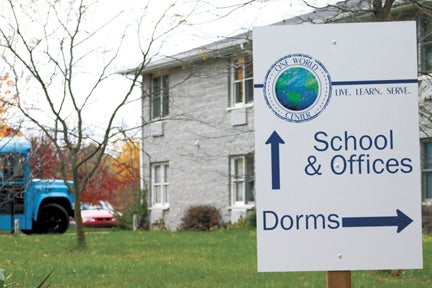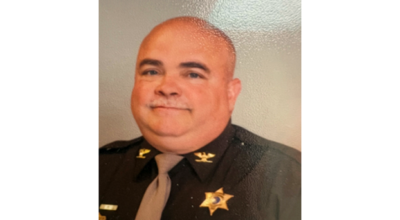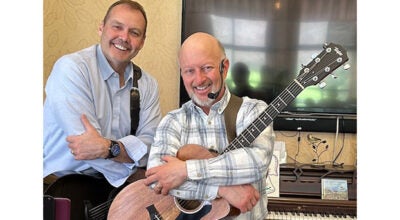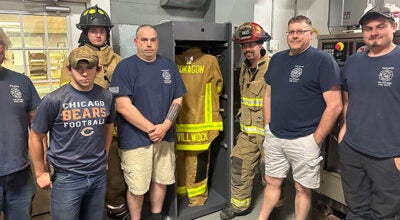IICD becomes One World Center
Published 8:20 am Tuesday, November 5, 2013

One World Center, formerly IICD, is an organization that travels across the community and the world volunteering to help combat international issues such as poverty and global warming. Leader Photo/AMBROSIA NELDON
A nonprofit organization with local ties has changed its name to better suit its operations and purpose.
The “Institute for International Cooperation of Development,” located on Dailey Road in Dowagiac has adopted the new name “One World Center.”
“The old name was so long, and so we just said IICD, and nobody really knows what that means, so then we thought about One World Center. It doesn’t need to be abbreviated because it’s easy. It just engages everything. One world in the center of everything,” said Anthony Nugent, who has served as Program Manager at One World Center in Dowagiac for four years.
Although the road sign in front of the dormitory still reads IICD, the promotion materials and the secondhand clothing collection boxes have the new name and logo.
Participants of One World Center partake in 18-month programs. The first 12 months are spent in Dowagiac, where the students prepare for a six-month stay in Africa.
“What we do is we use education to give people the tools so they can improve their own conditions,” Nugent said. “In Dowagiac, they’re in a team and it’s a boarding school, and they spend the whole day with their team. They do studies and they debate about the different issues, and they do investigations. They run the school, the cooking and the cleaning. We do a lot of the outreach activities where we get involved with local organizations.”
Nugent said the students in Dowagiac volunteer with numerous homeless shelters and secondhand clothing shelters in Benton Harbor, and collaborate with other organizations in Detroit and other areas. In addition to their volunteer efforts, students spend a large chunk of time studying history, human rights, climate change and global warming.
In the last part of their service for One World Center, students travel to Mozambique, Zambia or Malawi.
“Students live in a poor community and they either work in the schools, an orphanage or another kind of community social project,” Nugent said. He said students work hard to promote health and hygiene and educate the people of the African countries about HIV/AIDS prevention and other healthy practices.
When their trip is over, each team of students is responsible for creating some sort of literature — be it a poster, a book, a video, etc. — explaining what they learned during their service in Africa. The teams then travel the United States educating people on the status of the poverty-stricken countries and work with officials to solve the problem.
Nugent said students who participate are typically between 18 and 55 years old, but the average student is about 25.
“Typically the people who get involved get involved because there’s something inside them that wants them to do something more for some of the big issues we’re facing. They’re dealing with the poor or dealing with climate change. They have the resources and they have the time, so they donate it,” Nugent said.
One World Center has also recently increased its efforts to collect used clothes, which help the funding of the programs. Blue metal collection bins are located outside the dormitories on Dailey Road.
One World Center’s mission statement states that those involved “inspire and empower ordinary people to take action against worldwide poverty, addressing the issues of our time with unique teaching and learning environments that cultivate social change and support of our global vision: a sustainable future.”
Participants believe service at any level, whether in Dowagiac or Africa, makes a big impact.
“To put it simply, we use the saying ‘whatever you do locally has an impact globally,’” Nugent said.






